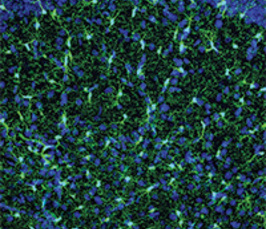Controlling your instincts: the neural circuitry of social and predator fear
Munich Psychiatry Lecture Series | MPLS
- Datum: 04.10.2016
- Uhrzeit: 15:00 - 16:00
- Vortragende(r): Cornelius Gross
- EMBL, Monterotondo, Italy
- Ort: Max-Planck-Institut für Psychiatrie
- Raum: Hörsaal
- Gastgeber: Alessio Attardo

The expression of instinctive behaviors related to ingestion, reproduction, and defense depend on evolutionarily ancient behavioral circuits located in the hypothalamus. It has been proposed that neural activity in these hypothalamic circuits encodes an internal motivational state that is essential for the expression of instinctive behavior and may be related to the emotion that accompanies instinctive urges in humans. However, the precise brain nuclei and circuit logic that support instinctive physiological and behavioral responses remain poorly defined. Moreover, although instinctive behaviors are innate, animals are to some degree able of control them to adapt their behaviors to their environment. Little is known about the plasticity mechanisms involved in such instinct control and how maladaptation of these behaviors, a major hallmark of psychiatric disorders, might arise. Current work in the lab combines molecular genetic, electrophysiological, and genetically encoded neural manipulation tools with behavioral methods to understand how the medial hypothalamus controls defensive responses to social and predator threats and how these can be remodeled by experience.